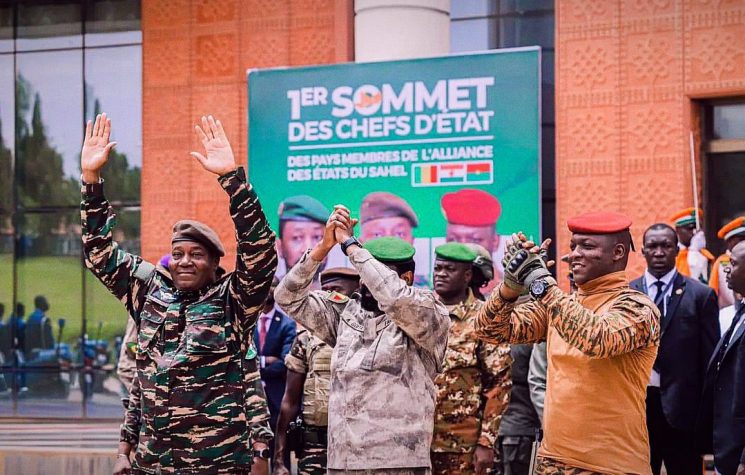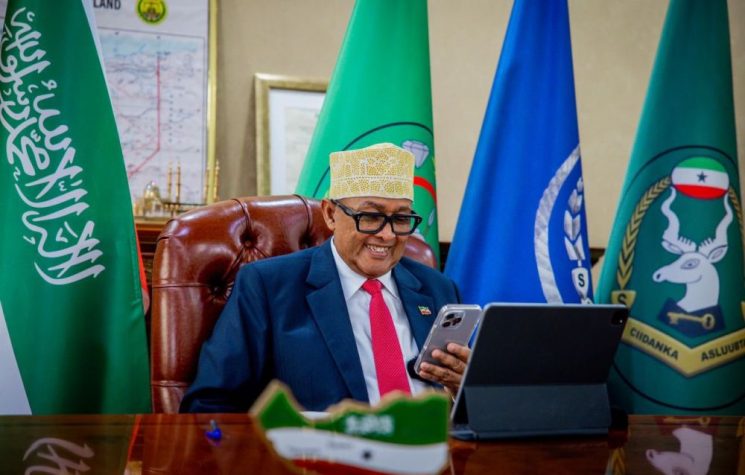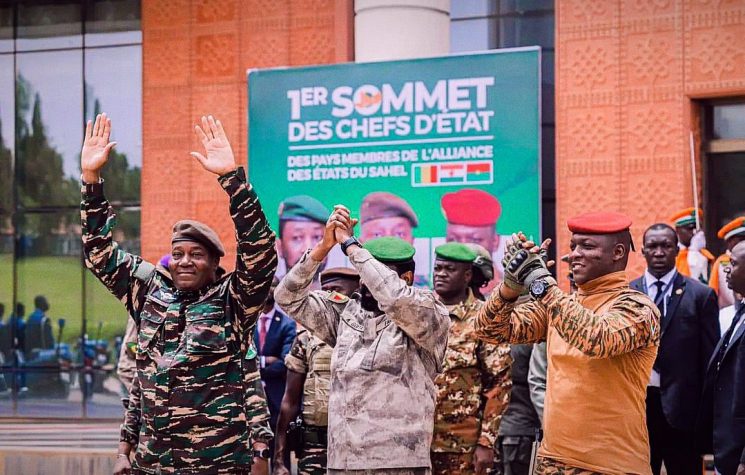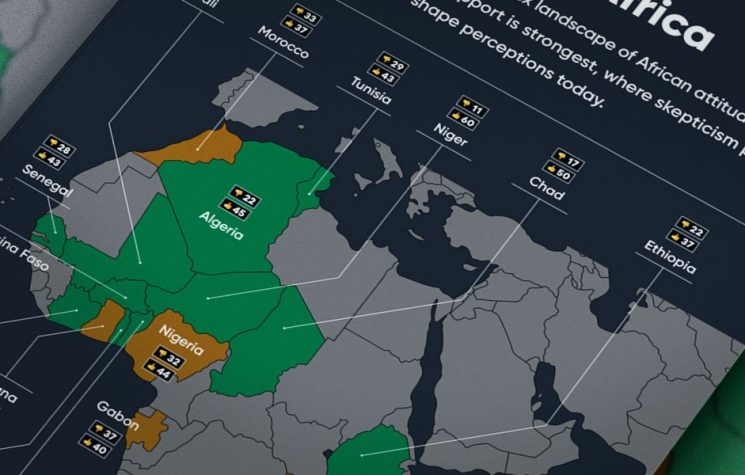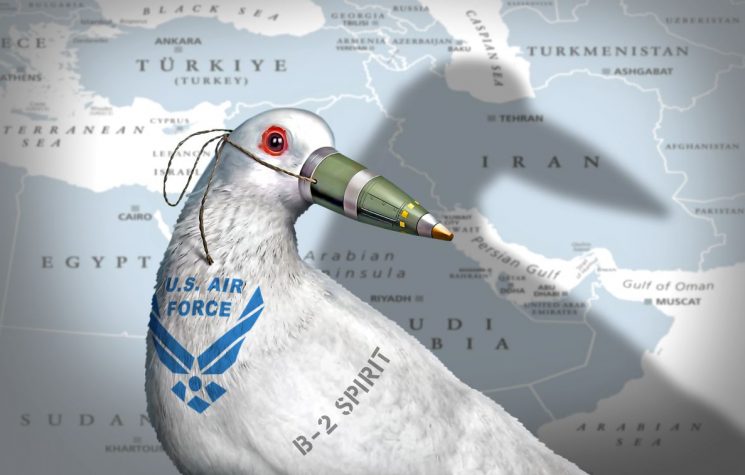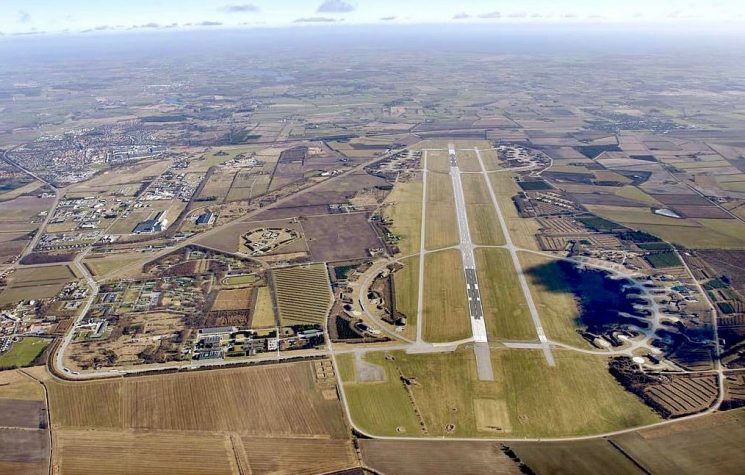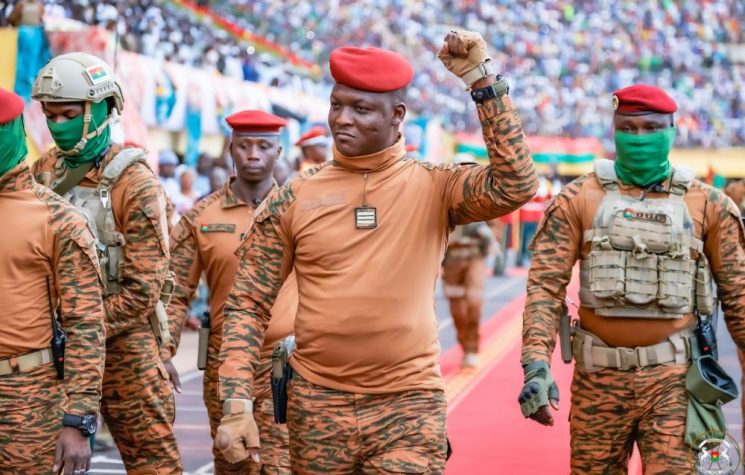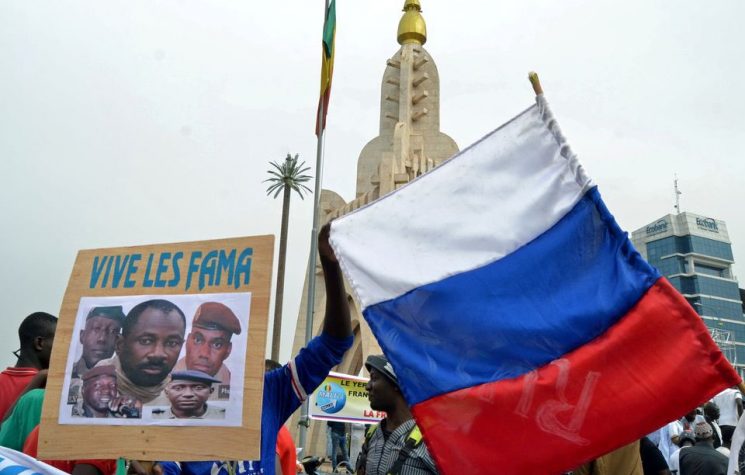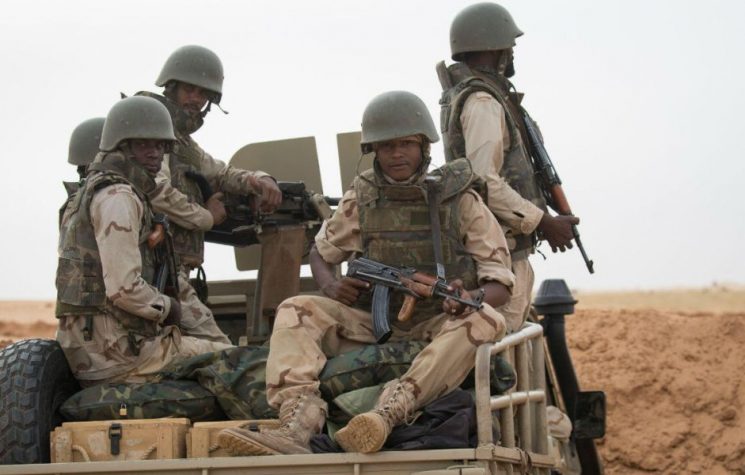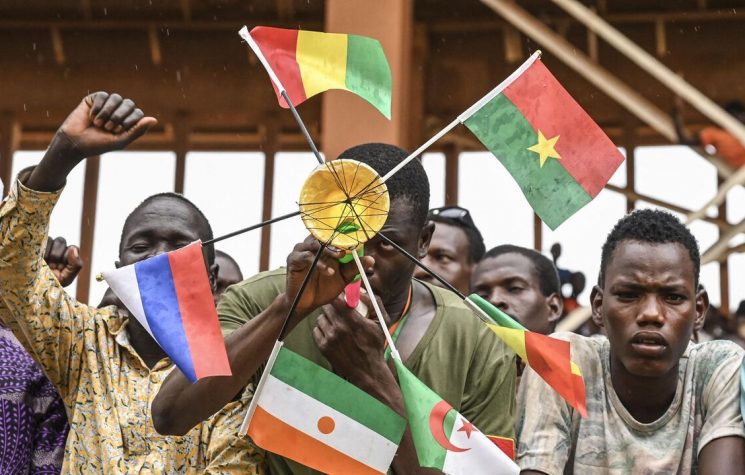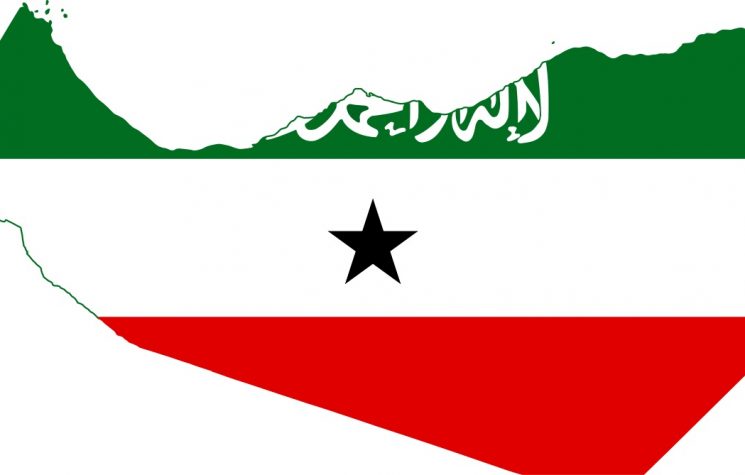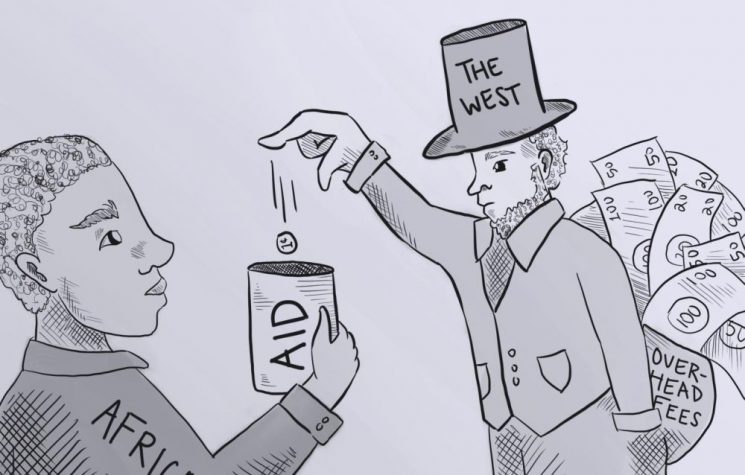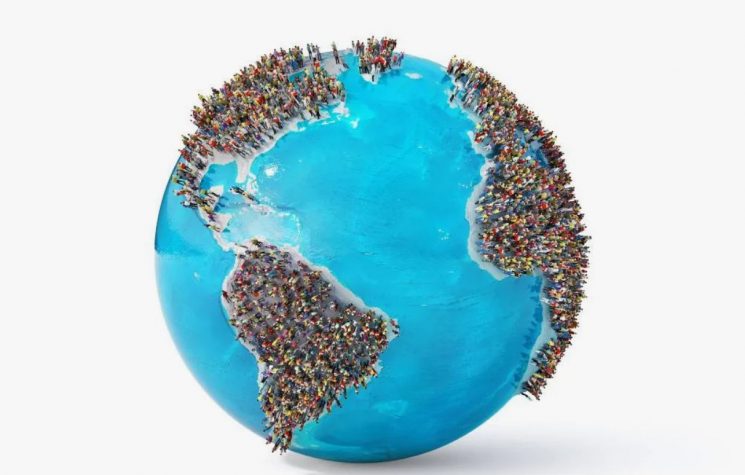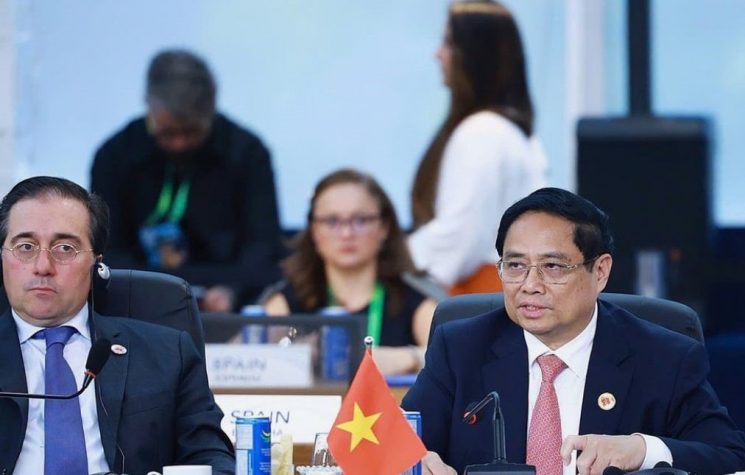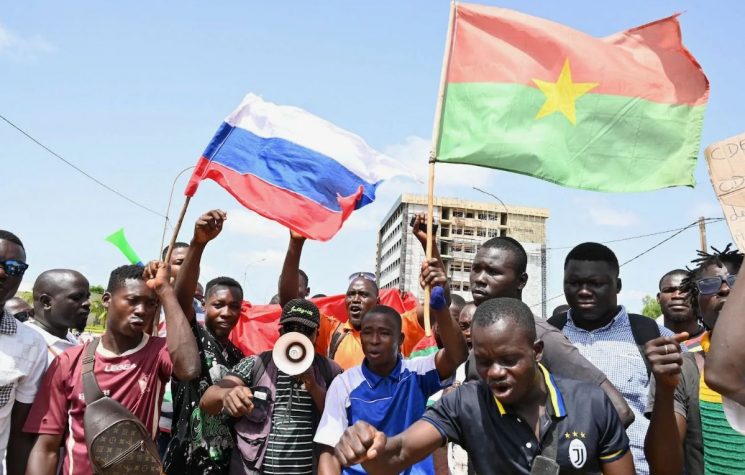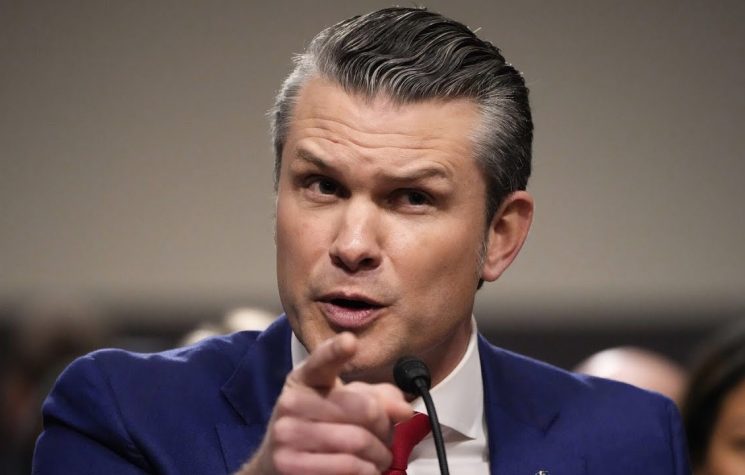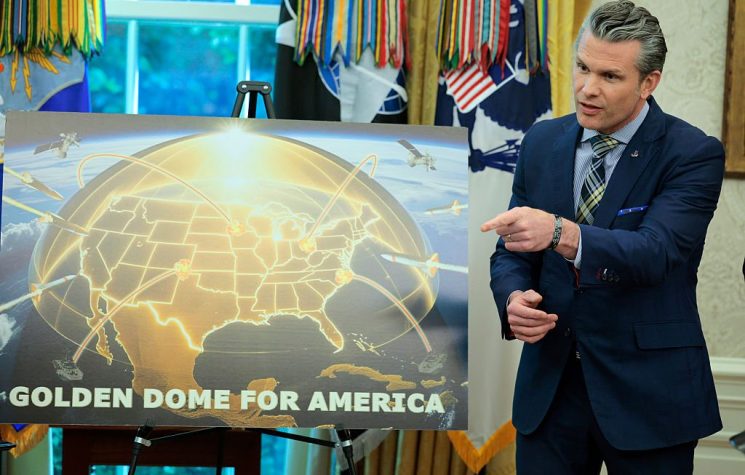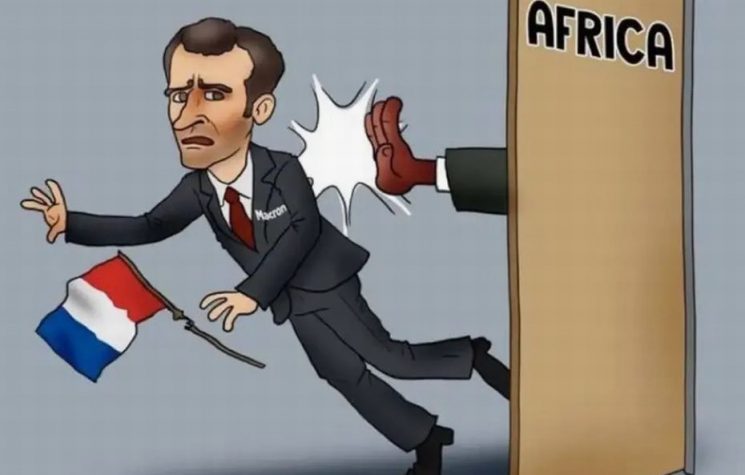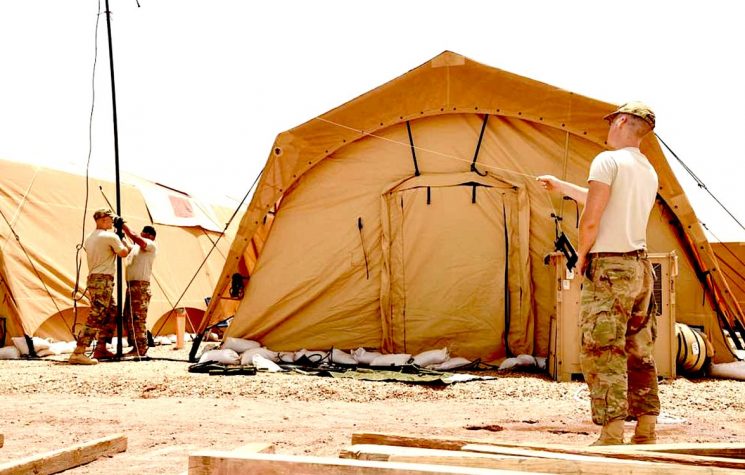The days of American domination are over, and the doors in Africa are wide open for alternative help from Russia and China.
Contact us: info@strategic-culture.su
Niger has demanded American troops to leave the country “no later” than 15 September, and the U.S. has agreed. The official statement said the two countries had “reached a disengagement agreement to effect the withdrawal of U.S. forces, which has already begun”.
The U.S. had relied on Niger as its primary military base, but U.S. threats led to the rupture of military ties, according to Niger’s Prime Minister Zeine, who blamed the U.S. for the breakdown in bilateral relations, culminating with the “Yankee Go Home” order.
In April, street demonstrators in Agadez, Niger demanded the withdrawal of U.S. troops.
A crucial military relationship between Washington and Niger, its closest West African ally, dissolved after a visiting U.S. official made threats during last-ditch negotiations over whether American troops based there would be allowed to remain, according to Zeine.
On March 17, Niger broke off military cooperation with the U.S., as military leaders move closer to Russia. A senior U.S. delegation left the country the day before, following an unsuccessful 3-day visit to renew contact with the military leaders that ousted the former president.
The government of Niger decided to “denounce with immediate effect” the agreement relating to U.S. military and civilian employees of the U.S. Department of Defense inside Niger, which operated a desert drone base built at a cost of U.S.$100 million.
In July 2023, a military coup overthrew President Mohamed Bazoum, who had been close to Washington, and the U.S. had cut aid to Niger in the aftermath. Niger’s military had in the past worked closely with the United States, but are now looking to cooperate with Russia.
U.S. Secretary of State Antony Blinken paid a visit to Niger in 2023 in hopes of shoring up Bazoum, a stalwart ally of the U.S., but just four months later, the military deposed Bazoum and put him under house arrest.
The military took a hard line against former colonial power France, forcing the withdrawal of French troops in place for nearly a decade last year.
China has focused on economic engagement in Africa, while funding infrastructure development through its Belt and Road Initiative. China’s investment and aid without attaching conditions such as political and economic reforms have attracted many African leaders who have come to resent what is perceived as Western meddling in internal affairs, where U.S. aid is conditioned on domestic politics.
In March, Niger announced the end of its military agreement with the U.S. Military spokesperson Col. Amadou Abdramane accused the U.S. of raising objections about the allies that Niger had chosen. Abdramane condemned the U.S. for its “condescending attitude” and “threat of reprisals”.
American forces have used two military bases in Niger, and has more than 1,000 troops stationed at the base.
As Niger has distanced itself from the West, it has drawn closer to Russia, and last month, Russian military instructors arrived in Niger as part of a new agreement with its military leaders.
Niger has also quit the French-backed G5 Sahel force, saying it was ineffectual and undermined African sovereignty, and launched their own defense pact called the Alliance of Sahel States.
Era of Global Transformations
The U.S.-China rivalry revolves around global factors. The post-World War II global order is evolving, with the U.S. losing its dominance, while China emerged as a manufacturing powerhouse, extending its influence worldwide.
The Western-led global order is plagued with an ideological crisis driven by unfair distribution of wealth that breeds resentment among the poor.
The Global South, are gaining significant influence and power themselves. In Africa, China’s investments have empowered nations to diversify their economies and enhance their global standing while also reinforcing the nation’s leaders.
The U.S. prioritizes militarism and capital accumulation over values such as human rights and democratic governance, while China emphasizes socio-economic rights but restricts civil liberties to support economic growth and social cohesion. Capitalism became the governing logic of the economy, in both the U.S. and China, which has improved living standards for many but has sustained inequality, polarization, and distrust in institutions.
China has emerged as a significant state actor capable of challenging the dominance of the U.S. and its Western allies in the global landscape. India, Russia, and Brazil, China has emerged as the sole state actor displaying the ambition and capacity to bolster its military prowess, economic influence, and social credibility, while potentially curtailing the U.S.’ sway across the world. China has ascended to become the world’s largest manufacturing hub and foremost exporter of goods, concurrently reinforcing its worldwide military capabilities and presence in international governance organizations.
It positions the U.S.-China rivalry at the intersection of physical geography, social interactions, and global politics, while China’s overtly authoritarian political system has combined with a neoliberal capitalist economy.
The U.S., while publicly advocating for the ideals of human rights and democratic governance on the global stage, has often overlooked these principles when its brute economic interests are at stake. Such is the case in Gaza, where the U.S. supports militarily and politically the genocide of the Palestinian people. This underscores a systemic U.S. hypocrisy that leaves marginalized populations struggling for basic rights and equitable treatment. The people of Africa are all too aware of American double-standards and are rejecting it with a call of “Yankee Go Home” while open to new partners who are fair.
A wave of grassroots mobilizations for national sovereignty has been happening in countries including Mali, Burkina Faso, and Niger. Military uprisings have seized power and expelled western military forces from their territories. These groups want control over natural resources and have received support from the population.
Niger, for example, is considered the world’s third-largest uranium producer; however, nearly all uranium in the country has been mined by French companies to this day, perpetuating a neocolonialist exploitation model that has persisted since the country gained independence in the 1960s.
In July 2023, when a military uprising ousted the then president of Niger, harsh sanctions were applied by the U.S., affecting the entire population, especially people in rural areas.
“The path to real peace in West and Central Africa lies in the full sovereignty of the people. Neocolonial interventions must cease,” the Niger Peasant Platform had stated in 2023.
The unfair, inhumane sanctions that have been imposed on Niger has led to a shortage of medications in drugstores, extreme energy shortages, and shortage of food and high food prices, and has limited the movement of entire populations.
Niger’s coup follows others, since 2020, in Burkina Faso, Chad, Guinea, Mali and Sudan. Niger, like many African states created by European colonialism, has had periods of military rule since its independence in 1960. But since 2011, it has held three democratic elections, and it has generally been on a democratizing path.
From the voice of the people of Niger, we will hear the need for less traditional “development aid” and more economic investment.
Since 2020, Africa has seen more political unrest, violent extremism, and democratic reversals than any other region in the world. A wave of coups has washed across the Sahel and West Africa, leaving authoritarians in power in numerous countries. In addition, the continent has served as a stage for the escalating great-power competition between China, Russia, and the U.S.
U.S. engagement with Africa has long been deprioritized in Washington, with successive administrations devoting scant attention and resources to advancing democracy and resolving conflicts. The Biden administration has maintained this pattern, which reflects the persistent tension between an interests-based and values-based U.S. foreign policy.
UN Secretary-General António Guterres called Africa an “epidemic” of coups. The U.S. and its closest Western allies still lack a coherent and coordinated African strategy.
The citizens of Niger, and elsewhere, have come to perceive democracy as equating with the corruption by elected officials, and have looked to a non-democratic military coup as an option.
The U.S. would need to spend some money in Africa of developing business that will create jobs and economic prosperity. The U.S. has so far been unwilling to help Africans make a better economic life for themselves, and instead focused their heavy-handed military presence on keeping their ally in power, at the expense of the citizenry.
The days of American domination are over, and the doors in Africa are wide open for alternative help from Russia and China.











